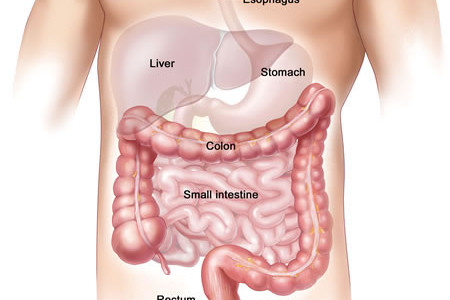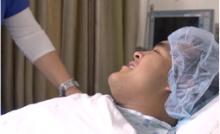
Grandma’s remedies may be great for alleviating your nausea or helping you get over the common cold. But are home treatments effective for relieving hemorrhoids?
Studies show that taking oral pain relievers, indulging in warm baths and applying topical treatments to the affected area are all useful for treating mild cases of hemorrhoids. However, severe hemorrhoids may require medical intervention before you see improvement. If you’re suffering from any of the following hemorrhoidal conditions, don’t hesitate to contact the GI specialists at La Peer Health Systems’ Hemorrhoid Center of Excellence for a consultation.
Prolapsed Hemorrhoids
Hemorrhoids occur when veins in the anus and lower rectum swell, often resulting in pain and bleeding during bowel movements. A type of internal hemorrhoid requiring medical intervention, a prolapsed hemorrhoid is one in which tissue protrudes from the anus. Over time, prolapsed hemorrhoids can become strangulated due to pressure from the muscles of the anus. Left untreated, this type of hemorrhoid can potentially lead to blood clots. If you think you may be suffering from a prolapsed hemorrhoid, or if your internal hemorrhoids aren’t healing on their own, be sure to contact a GI specialist for a consultation.
Thrombosed Hemorrhoids
Unlike a prolapsed hemorrhoid, a thrombosed hemorrhoid results when an external hemorrhoid forms a blood clot. Found on the exterior of the anus, this form of hemorrhoid often appears blue in color. People suffering from thrombosed external hemorrhoids may need a hemorrhoidectomy to remove the clot and alleviate pain and suffering.
Recurring Hemorrhoids
Studies show that hemorrhoids that recur are more likely to become serious, and if you’re experiencing persistent hemorrhoids that don’t respond to home remedies, you might want to see a GI specialist for treatment. Seeking medical advice can help you get relief from hemorrhoidal pain and even come up with a treatment plan to prevent hemorrhoids from returning in the future.
Rectal Bleeding
One of the most important reasons to see a GI specialists is for rectal bleeding. If you’re suffering from internal hemorrhoids, bleeding can happen during a bowel movement. For those with persistent external hemorrhoids, bleeding may occur if the hemorrhoid is scratched or irritated, causing it to rupture. Although bleeding associated with hemorrhoids is not serious in most cases, it’s crucial to see a doctor if you experience persistent rectal bleeding. The GI doctors and colorectal surgeons at the Hemorrhoid Center of Excellence may recommend a colonoscopy to rule out more serious conditions including colon cancer. It’s important to remember that colonoscopy is both a preventative and a diagnostic procedure, and finding colon cancer early is essential to achieving a complete recovery.
Contact The Hemorrhoid Center of Excellence Today
In many cases, hemorrhoids are not serious. However, if home remedies fail to relieve your hemorrhoids – or if you’re suffering from prolapsed or thrombosed hemorrhoids, recurring hemorrhoids or rectal bleeding – don’t hesitate to seek medical attention. At the Hemorrhoid Center of Excellence in Beverly Hills, we offer a number of hemorrhoid treatments including rubber band ligation and hemorrhoidectomy to remove your hemorrhoids. Call (888) 742-2032 or contact us online today to get relief.










